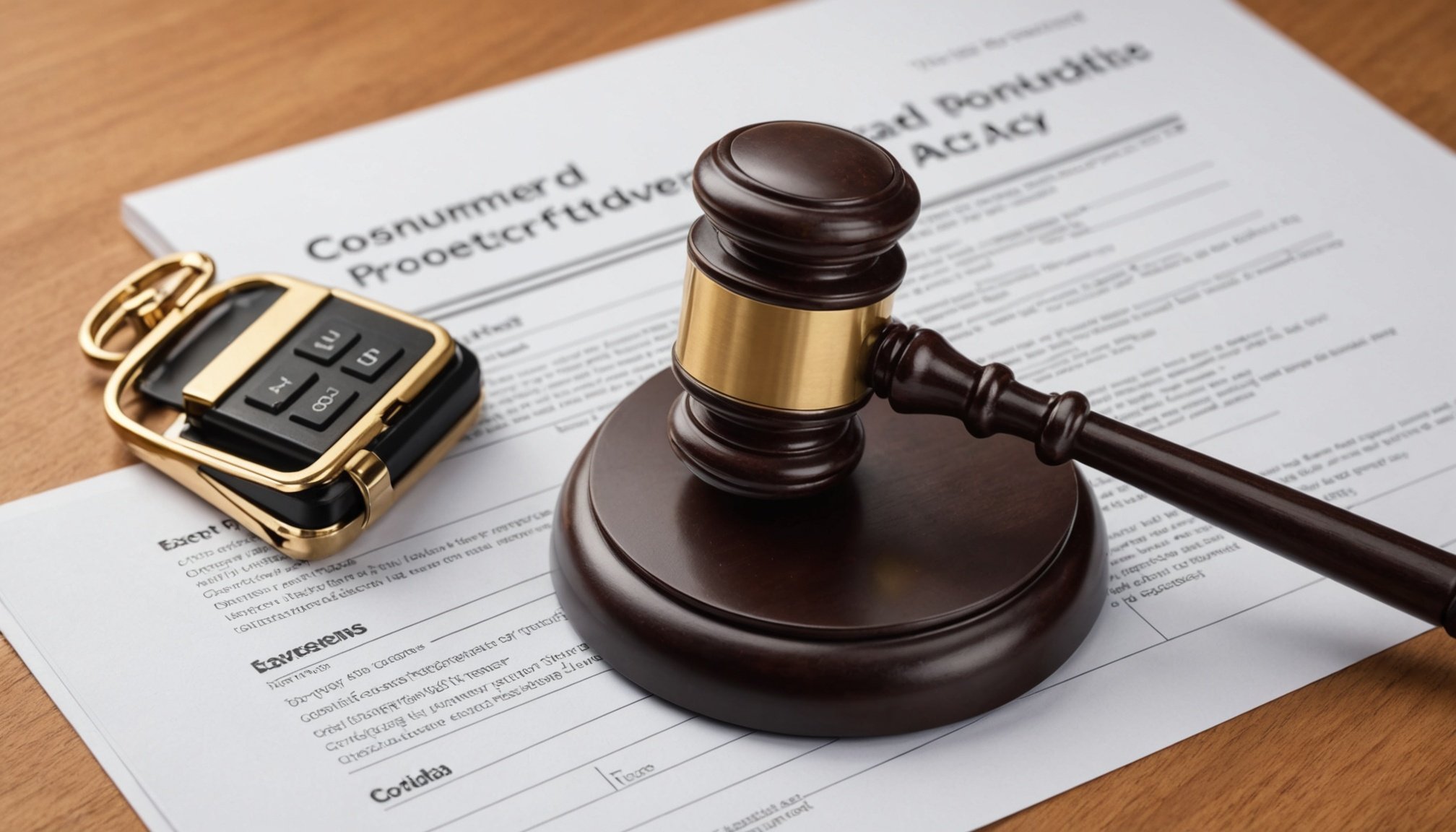Overview of the Consumer Protection Act 1987
The Consumer Protection Act 1987 is a pivotal piece of legislation in the UK, designed to safeguard consumer interests and establish a comprehensive legal framework for regulating product safety and liability. The Act’s purpose is to ensure that products supplied to consumers are safe and that manufacturers and suppliers bear responsibility for any harm caused by unsafe products.
Purpose and Objectives
The goal of the Consumer Protection Act is to protect consumers from harm due to defective products by imposing strict product liability on producers. This enables consumers to claim compensation if a product causes injury or damage, even if the producer was not negligent.
Also to see : Navigating UK Crypto Regulations: Ensuring Compliance for Business Transactions
Key Provisions Affecting UK Enterprises
UK enterprises are significantly impacted by the Act, as it requires them to adhere to stringent safety standards. Businesses have a duty to ensure that their products are safe and free from defects. The legislation outlines the procedures for making consumer claims, thus encouraging adherence to safety regulations.
Significance of Product Liability Under the Act
Product liability claims form a fundamental aspect of the Act, shifting focus to consumer safety and protection. Enterprises are encouraged to maintain high standards of manufacturing and quality control to mitigate the risk of liability claims and protect their brand reputation.
Also read : Essential Roadmap to Patent Protection: Crucial Legal Steps for UK Enterprises
Legal Responsibilities of UK Enterprises
UK enterprises are held accountable for upholding legal responsibilities under the Consumer Protection Act 1987. This legislation imposes stringent corporate obligations on businesses, particularly regarding product safety.
Duty of Care
Businesses have a fundamental duty of care to ensure their products are safe for consumers. This entails rigorous testing and quality assurance processes to identify and mitigate potential hazards. By prioritising product safety, enterprises can minimise risks and safeguard their brand reputation.
Product Safety Standards
Compliance with established product safety standards is mandatory. These standards outline the criteria that products must meet to be considered safe for use. Failure to meet these requirements can lead to severe consequences, including legal liability and financial penalties.
Consumer Rights Protection
Under this framework, the protection of consumer rights is paramount. Companies are required to respect and uphold these rights, ensuring that any defects or issues are addressed promptly. Non-compliance could result in significant legal and financial repercussions for enterprises, thus making it imperative for businesses to maintain vigilance and adherence to the Act’s stipulations. This proactive approach helps businesses avoid negative impacts on their operations and reputation.
Product Liability Under the Consumer Protection Act
Product liability is a critical element of the Consumer Protection Act 1987, fundamentally transforming how liability claims are approached in the UK. This legal principle holds producers responsible for ensuring that their products are free from defects or dangers. If products cause harm, consumers can make liability claims for compensation. These claims are notably important because they do not necessitate proving a producer’s negligence, which simplifies the legal process for those affected.
The scope of product liability is extensive, covering any product that contributes to unintended injury or damage. Under this Act, liability claims can arise from various scenarios, such as faulty design, poor manufacturing, or inadequate warnings on labels.
Notable product liability claims serve as pertinent examples of this Act’s effectiveness in safeguarding consumer rights. For instance, several high-profile cases have compelled companies to rethink their quality control measures, ultimately pushing safety standards higher. Understanding these cases helps highlight the importance of rigorous compliance with the Act and provides insights into how enterprises can better protect themselves from potential claims.
In sum, product liability ensures consumer safety while instilling a sense of responsibility among UK enterprises to prioritise quality in their offerings.
Compliance Best Practices for Enterprises
Creating a seamless compliance strategy is crucial for UK enterprises to mitigate risks associated with the Consumer Protection Act 1987. Adopting best practices helps ensure adherence to legal standards and safeguard product safety.
Regular Compliance Audits
Regular compliance audits serve as the foundation for identifying potential gaps in adherence to legal requirements. Enterprises should implement routine checks to assess how well their practices align with the Act. These audits provide a proactive approach, fostering a company culture committed to consumer safety and regulatory compliance.
Employee Training and Awareness
Investing in comprehensive employee training on consumer protection laws enhances awareness and encourages adherence to established guidelines. Training programmes help staff understand the relevance of compliance and equip them with the knowledge to identify potential safety hazards. These initiatives play a significant role in reinforcing corporate obligations and building a responsible workforce.
Documentation and Record Keeping
Effective documentation and meticulous record-keeping are essential for maintaining a history of compliance activities. By keeping accurate records, enterprises can quickly demonstrate adherence during audits or in response to consumer claims. This practice not only supports accountability but also provides a useful reference for continuous improvement in risk management strategies.
Consequences of Non-Compliance
Navigating the Consumer Protection Act 1987 requires UK enterprises to be vigilant, as non-compliance could incur substantial penalties and business risks. A breach of this legislation doesn’t merely involve fines; it may lead to severe legal consequences. Companies that fail to adhere to outlined safety and liability standards can face legal actions, which may involve costly settlements or prolonged court cases, eroding financial stability.
Moreover, the impact on a company’s reputation can be long-lasting. Consumer trust, once lost, is challenging to regain, leading to decreased sales and market share. Brand image is a crucial asset, and any negative attention stemming from legal issues under the Act can deter customers and partners alike.
Business risks extend beyond immediate legal repercussions. Negligence in compliance could lead to disruptions in product offerings and operational challenges, affecting long-term strategic goals. With marketplaces favouring transparency and accountability, enterprises must weigh the risks of non-compliance seriously.
Thus, mitigating these consequences with proactive measures, such as regular audits and rigorous documentation, may be essential. UK enterprises should commit to continuous improvement in adhering to the Consumer Protection Act, ensuring compliance safeguards their interests and sustains business success.
Resources for Further Guidance
To navigate the complexities of the Consumer Protection Act 1987, UK enterprises can leverage several resources aimed at providing legal resources, compliance guidelines, and industry standards.
Government Resources
The UK government offers a wealth of resources to help businesses understand and comply with consumer protection laws. This includes access to official guidance documents, reports on regulatory changes, and tools for assessing adherence to safety regulations. These resources are indispensable for ensuring that businesses meet their legal responsibilities and minimise the risk of penalties.
Industry Associations
Industry associations play a pivotal role in supporting businesses with compliance. As a member of these associations, enterprises receive updates on best practices and industry-wide standards that can aid in risk management. They also provide networking opportunities for companies to share knowledge and experiences regarding compliance challenges, fostering a collaborative approach to consumer safety.
Legal Consultation Services
Consulting with legal experts offers invaluable advice tailored to the unique needs of each enterprise. Legal consultation services help businesses interpret complex compliance guidelines and advise on implementing strategies that align with industry standards. Engaging with these services ensures enterprises are thoroughly informed and equipped to handle the intricacies of consumer rights protection successfully.






